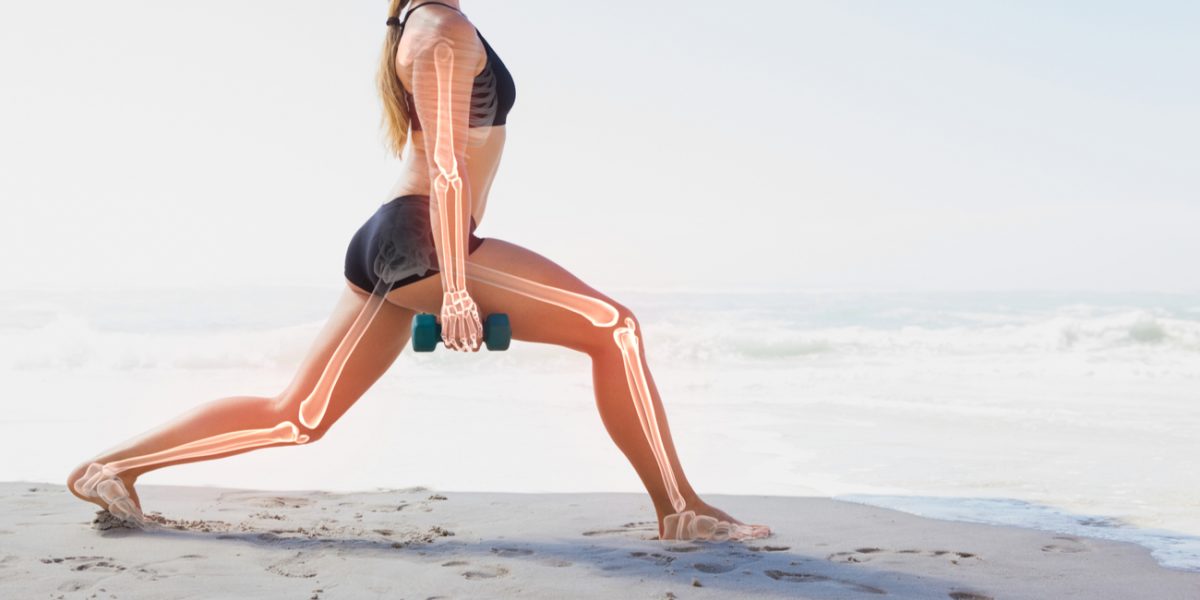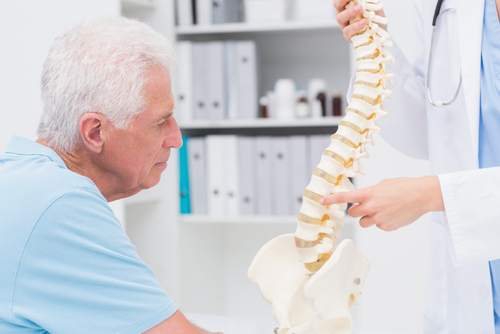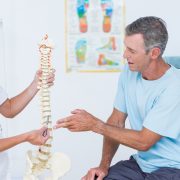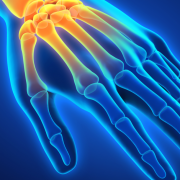
When people think about bone health, osteoporosis often comes to mind. And, for good reason. There are currently 44 million people with osteoporosis or low bone mass, representing 55% of the population of Americans age 50 and older. With this number expected to rise, bone health awareness has become an increasingly vital topic.
The good news is there are steps you can take to encourage positive bone health. Studies show that healthy eating and exercise for bone health are some of the best strategies you can implement.
At EmergeOrtho—Triangle Region, our Bone Health Team empower, educate, and engage our patients in best practices for bone health. As part of our Bone Health Initiative, we provide bone density scans at EmergeOrtho’s Durham and Wilson locations. These scans are one of the best ways to detect early onset osteoporosis and prevent it from advancing.
Here is to strong bones and Emerging Stronger. Healthier. Better.
What Causes Bone Health to Become Compromised?
Osteoporosis occurs as a result of bone loss. This makes the bones particularly susceptible to fracturing. One in two women and one in four men, age 50 and older, experience fractures due to osteoporosis.
Age is a primary contributing factor to developing osteoporosis. Learning how to keep your bones strong as you age is one of the best things you can do for your body! Around age 35, the body has produced the greatest amount of bone it can attain. This is called your “peak bone mass.”
While aging is a primary concern, family history of fractures, certain medications, and other illnesses can also affect bone health.
Another main area of concern leading to diminished bone health is nutrition. Poor nutrition, especially lack of calcium, combined with a sedentary lifestyle is often a recipe for osteoporosis.
Even people that have not been diagnosed with osteoporosis, may have what is called osteopenia. Although not yet severe enough to be osteoporosis, osteopenia indicates that a patient has low bone mass and could be at higher risk for fracture.
The Best Way to Eat and Exercise for Bone Health
Some examples of the best foods for healthy bones are those full of calcium, Vitamin D, and overall balanced nutrients, which include:
 Dairy Products
Dairy Products
Nonfat and low-fat dairy is a good sources of calcium and vitamin D.- Fruits and Vegetables
Leafy greens like collard greens, kale, and mustard greens are rich in calcium and vitamin K. Sweet potatoes, papaya, oranges, prunes, and bananas contain needed potassium. Spinach, beet greens, and okra contain healthy amounts of magnesium to keep bones strong and healthy. - Fish
Salmon and sardines are full of calcium and vitamin D. - Fortified Foods
Certain types of breads, breakfast foods, orange juice, almond milk, and rice milk are fortified with calcium and vitamin D.
In addition to eating more mindfully, exercise will help ensure that your bones and the muscles that surround them are strong and healthy.
Experts recommend a combination of weight-bearing and strengthening exercises to encourage strong bones. High impact activities are best, but only for people who are not frail or at risk of bone fractures. Examples of physical activities to promote bone health for active adults, include:
- Walking (at a brisk pace)
- Hiking
- Jogging or running
- Dancing
- Jumping rope
- Tennis
- Team sports (basketball and soccer)
- Stair climbing
For adults at risk of falling or in frail health, there are still exercises you can perform safely. Studies show that balance training and tai chi decreases falls by 47% and reduce the risk of hip fracture by an estimated 25%.
Always consult your orthopedic physician if you are unsure about starting a new fitness activity.
More Ways to Encourage Healthy Bones
In addition to being proactive in implementing positive eating and exercise habits, early detection is one of the best ways to prevent bone loss.
Our Bone Health Team at EmergeOrtho—Triangle Region has the expertise and state-of-the-art technology to evaluate and diagnose your bone density.
To learn more, self-schedule an appointment now. Or, call us any time at (919) 220-5255.







